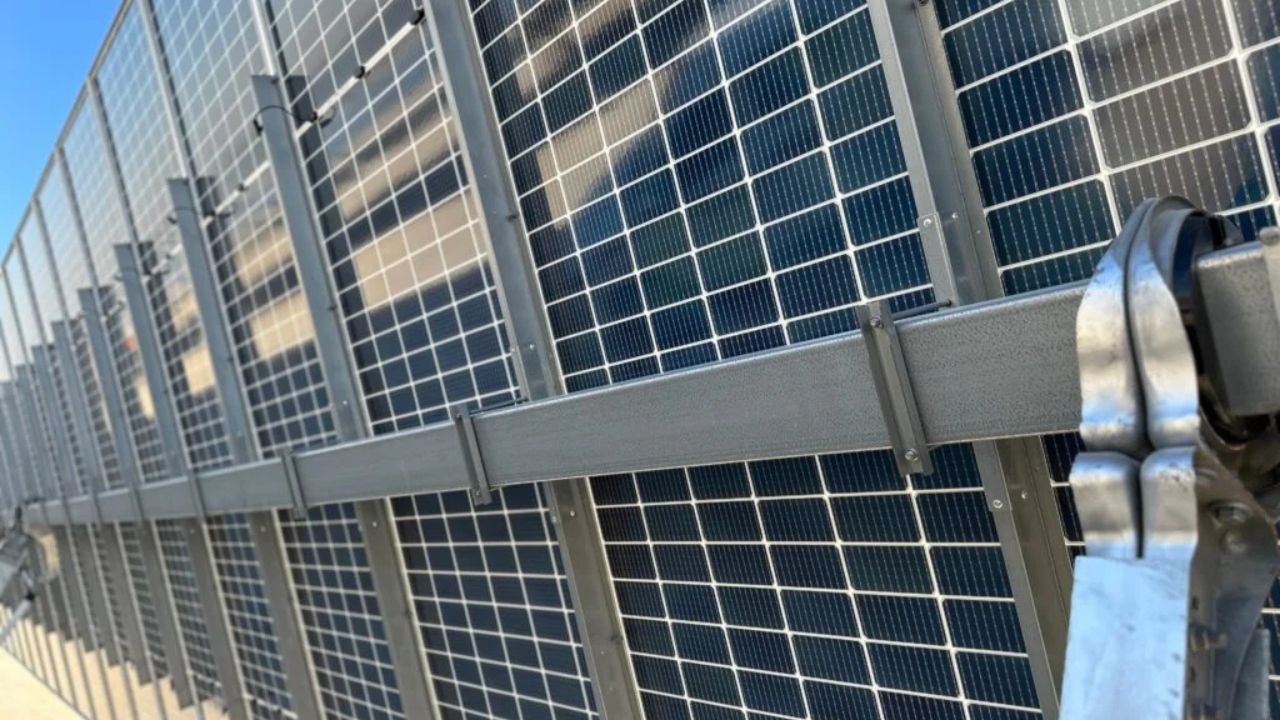Solar tracker systems represent a fundamental innovation that boosts the performance of photovoltaic (PV) panels. The torque tube stands as a fundamental component of these systems because it ensures both structural stability and solar panel movement capabilities. The high-quality torque tubes are designed for solar tracker systems, ensuring durability, precision, and enhanced energy efficiency, learn more at https://www.tuspipe.com/products/torque-tube/. This article examines torque tube operations in solar tracker systems while describing their structural design and how they enhance solar power effectiveness.
Understanding Solar Tracker Systems
The purpose of solar tracker systems is to position solar panels at optimal angles relative to the sun for maximum solar energy harvest while delivering higher efficiency than conventional static setups. The two main tracker configurations available are single-axis and dual-axis systems. Single-axis trackers use one rotational axis to move across east-to-west sun movement paths in vertical or horizontal planes. The combination of vertical and horizontal positioning adjustments in dual-axis trackers provides a highly accurate solar-aligning system. Torque tubes function as essential structural elements throughout all solar tracker systems to enable synchronized solar panel movement.
Function of Torque Tubes in Solar Trackers
Solar tracker systems utilize torque tubes for three essential purposes: they provide structure enable movement and protect against external forces.
Structural Support
Solar tracker systems depend on torque tubes to function as their main structural component which links multiple PV modules together. The torque tubes maintain panel position while distributing weight across the system to avoid structural damage. Solar trackers benefit from high-strength materials such as galvanized or stainless steel which ensures they operate reliably throughout different weather scenarios.
Rotational Mechanism
Torque tubes serve as the fundamental component which enables solar panel movement. The tracker's drive mechanisms and actuators use these components to operate the rotational movements. The tube transfers motor-generated torque to solar panels which allows the system to track the sun effectively and boost solar energy collection.
Resistance to Environmental Forces
Solar trackers experience dynamic environmental exposure to wind loads snow accumulation and seismic activity. Torque tubes demonstrate the ability to resist environmental forces without losing their structural stability. Reinforced torque tubes with optimized shapes including square, circular, and octagonal designs demonstrate enhanced resistance to bending and torsional stress which maintains reliability during harsh conditions.
Types of Torque Tubes
Torque tubes exist in multiple design options that match specific tracker configurations and project needs.
Circular Torque Tubes
Circular torque tubes find extensive use because they distribute stress across their entire structure. The curved design of these tubes reduces points of weakness while simultaneously giving strong protection from torsional strain. The implementation of these tracker designs sometimes needs supplementary support elements.
Square and Rectangular Torque Tubes
The structural rigidity gained through square and rectangular torque tubes makes them excellent choices for tracker deployments in high-wind areas. The flat construction of these components enables simple connection to other parts which enhances system stability.
D-shaped and Octagonal Torque Tubes
The implementation of D-shaped and octagonal torque tube designs improves weight distribution and provides enhanced strength characteristics. The new configurations enhance both material cost efficiency and load transfer performance.
Advantages of High-Quality Torque Tubes
Solar trackers equipped with high-quality torque tubes deliver improved efficiency and cost-effectiveness together with an extended system lifespan.
Enhanced Energy Output
Solar panel energy capture reaches its maximum potential through torque tubes which provide precise and smooth panel movement. Solar farms achieve better electricity output and financial returns through improved ROI because of these torque tubes.
Reduced Maintenance Costs
Rose-resistant torque tubes protect against mechanical breakdowns which helps minimize overall maintenance expenses. Engineered torque tubes protect both actuators and motors from wear while they extend the operational life of tracker systems.
Improved Structural Integrity
A properly engineered torque tube maintains solar panel alignment while preventing structural deformities which ensures optimal panel positioning. The stability of solar installations depends on this factor to maintain their operational efficiency throughout their operational lifetime.
Manufacturing and Processing of Torque Tubes
To meet industry standards, torque tubes undergo advanced manufacturing processes such as:
CNC Machining:
The manufacturing process delivers precise tube dimensions and accurate hole drilling which enables secure panel attachment.
Swaging and End Forming:
The process strengthens the attachment points between torque tubes and their connected elements.
Multi-Spindle Drilling:
The manufacturing process of solar tracker systems benefits from higher accuracy and faster production rates.
Welding Robotics:
The production of strong durable joints results in improved performance.
Conclusion
Solar tracker systems depend on torque tubes to deliver essential support functions that enable movement and enhance durability for optimal solar energy generation. Solar farms depend on torque tubes to survive environmental challenges and maintain accurate panel positioning because of their essential role in modern solar installations. The expanding solar power sector will drive increased demand for high-performance torque tubes which will stimulate tracker technology development and sustainable energy solutions.


